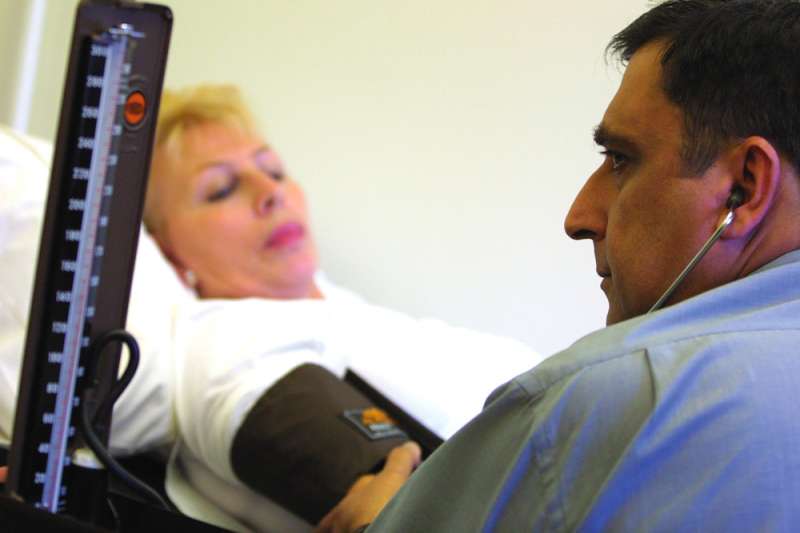7,000 strokes prevented as GPs improve diagnosis and treatment of atrial fibrillation

Around 7,000 strokes each year are being prevented thanks to GPs more than doubling the number of patients at high risk being prescribed with drugs to prevent blood clotting, University of Birmingham researchers have found.
Researchers from the University of Birmingham's Institute for Applied Health Research analysed general practice records of five million patients from 2000 to 2016 to find out how many people have a diagnosis of atrial fibrillation and how many are receiving treatment to prevent strokes.
Atrial fibrillation is the most common cause of an irregular heartbeat and five times increases the risk of stroke – annually, 14 per cent of all strokes in the UK are suffered by patients with the condition. To reduce the risk of stroke by around two thirds, patients with atrial fibrillation are given anticoagulant drugs to prevent blood clotting, such as warfarin.
Up until now there has been little research showing the prevalence and treatment of atrial fibrillation. Now, University of Birmingham research, published in Heart and partly funded by the National Institute for Health Research, has found that the frequency of diagnosis has increased each year between 2000 and 2016 and reached around 1.2 million in 2016.
The researchers also found that, in this same 16-year period, the proportion of patients with atrial fibrillation who were being prescribed anticoagulants more than doubled—rising by 40.1% from 35.4% in 2000 to 75.5% in 2016.
Author Dr. Nicola Adderley said: "We found that in 2000 only 35 per cent of people with atrial fibrillation who should be taking anticoagulants were actually prescribed them.
"By 2016, the situation had changed dramatically and 75 per cent were receiving them, which highlights that GPs have become markedly better at not only identifying patients with atrial fibrillation, but also at treating these patients.
"Furthermore, over the same period, general practitioners also seem to have got better at selecting who should get anticoagulants.
"The drugs are not recommended for a small minority of younger people with atrial fibrillation whose overall risk of stroke is low and prescribing fell from 20 per cent to 10 per cent in this group."
Senior and corresponding author Professor Tom Marshall said: "This is a success story for NHS general practice.
"Atrial fibrillation causes about 20,000 strokes each year but general practice is preventing about 7,000.
"The proportion of atrial fibrillation patients getting anticoagulants has continued to increase year on year.
"There are some general practices that do particularly well and there is every indication that stroke prevention will probably continue to improve."
Author Dr. Krishnarajah Nirantharakumar added: "We hope we will continue to see improvements in stroke prevention within the NHS and more research to investigate the management of atrial fibrillation in UK general practice."
More information: Nicola Jaime Adderley et al. Prevalence and treatment of atrial fibrillation in UK general practice from 2000 to 2016, Heart (2018). DOI: 10.1136/heartjnl-2018-312977
Provided by University of Birmingham












